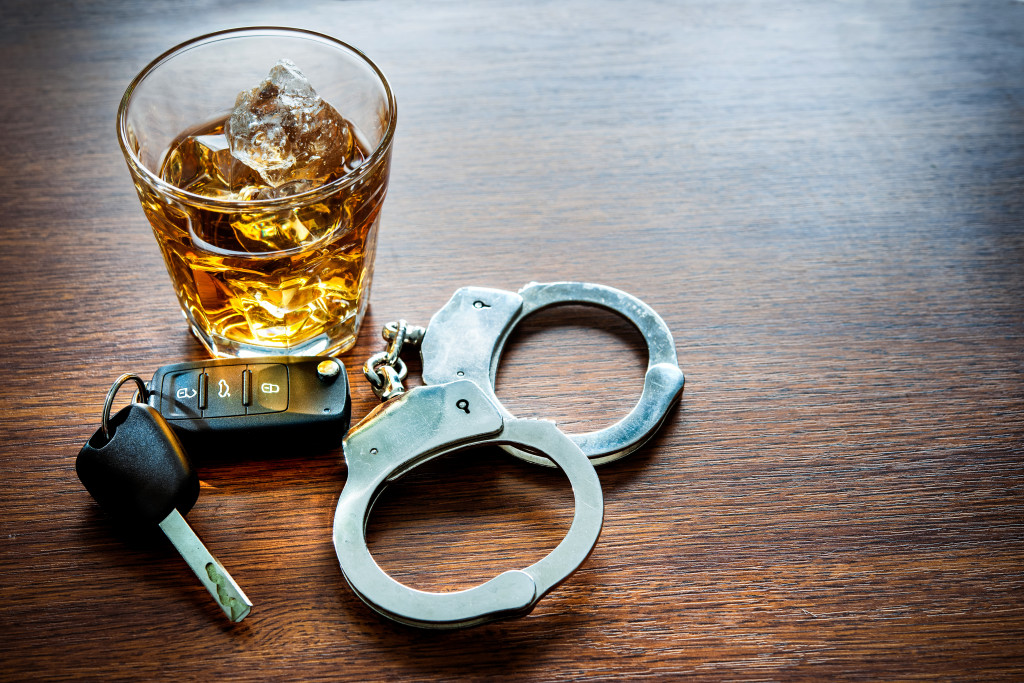Impaired driving can kill. According to the CDC, in 2016, over 10,000 people died from crashes because of driving under the influence (DUI). These accidents are responsible for nearly 30 percent of all traffic-related deaths.
Taking a driver’s drug and alcohol test online can properly educate those behind the wheel on their duties while on the road. That includes not driving when their cognition is impaired, when they are disoriented, or when they’re too tired to drive.
But there’s one more reason to be safe on the road, especially if they’re an entrepreneur: with DUIs, they can potentially lose their business.
How DUI Leads to Business Losses
Even the richest people in the world depend on loans to grow their businesses. In the United States, to have access to better options is to obtain an excellent credit score. This score is usually based on the data provided by the credit report.
DUI records do not show up on credit reports since they remain in the Justice Department. Thus, some drivers slash business people believe they can get away with it. However, these convictions can lead to financial troubles that can ultimately impact one’s credit score. NASDAQ explains it well:
1. A DUI Is Expensive
A DUI conviction can drain a driver’s cash flow. First, a person may need to bail himself, which can already cost up to $2,500 depending on the severity of the offense. Towing and impounding is also another spending. A driver can expect to shell out about $1,200.
Penalties are hefty as well. In Florida, a first-time DUI conviction could already mean a fine of at least $1,000 and a jail time of up to six months. A person may also lose their driver’s license for half a year and needs to go through hours of community service.
Meanwhile, in New York, a DUI offense is usually a misdemeanor unless it leads to a second conviction within five years. By then, it immediately escalates to a felony, which comes with higher penalties and longer jail time.
Drivers also need to spend money on lawyer’s fees. Initially, it could cost around $5,000. But if the case goes into a trial, it can easily balloon to thousands, depending on the length of the process. Hiring a private lawyer doesn’t guarantee success either. Offenders can still go to jail and pay fines.

2. DUIs Can Raise Insurance Premiums
A DUI record automatically makes the driver a high-risk one, and from an insurance standpoint, it raises premiums quickly and massively. Value Penguin revealed that most pay twice their original insurance coverage.
In some states, a single offense can already increase the insurance rate by over 70 percent. A person with four DUIs may have to pay almost 300 percent more than those with no record. A citation can also continue to affect premiums for about five years, depending on the state.
To cover these big expenses, a driver, who may also be a businessperson, may use their credit card or apply for a loan to cover them. If they are difficult to pay, the following scenarios can occur:
- The credit utilization rate goes up. This is a ratio that compares how much a person owes and their credit limit. Anything higher than 30 percent isn’t good as it sends signals to lenders that the person may not have enough cash or financial capability to cover their debt or needs. It can pull the credit score down.
- Unpaid or overdue loans can appear on the credit report. While there are different ways to calculate the credit score, they are unanimous in using credit history as one of the important criteria. Thus, late, missed, and overdue payments can impact the scores, and it can take between 9 and 18 months to raise the scores.
- Collections can appear and stay on the report as well. When someone continuously misses their repayments, lenders may pass on the job to a collections agency, reporting the delinquency to the credit bureaus. It can stay on public record and report for at least 7 years.
Can one recover from a DUI conviction? The answer is yes, but the road can be both long and winding. The state may require SR-22 insurance, which implies that the insured has a financial liability over others in case they meet an accident.
It usually costs around $1,500 but could increase by threefold for a DUI offense. The person may also end up paying for it for years.
If the business disappears because the driver cannot afford it anymore, they may file for bankruptcy. However, even this doesn’t stop a DUI conviction.
The bottom line is, partying and drinking and then driving afterward is not worth it. It can lead to losses that may take years or may even be impossible to recover.

